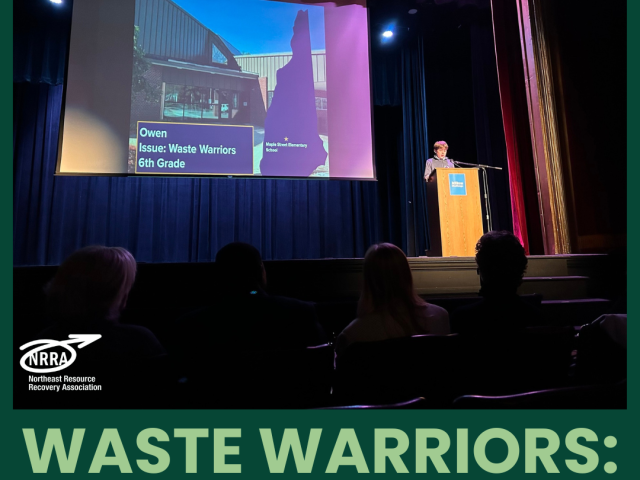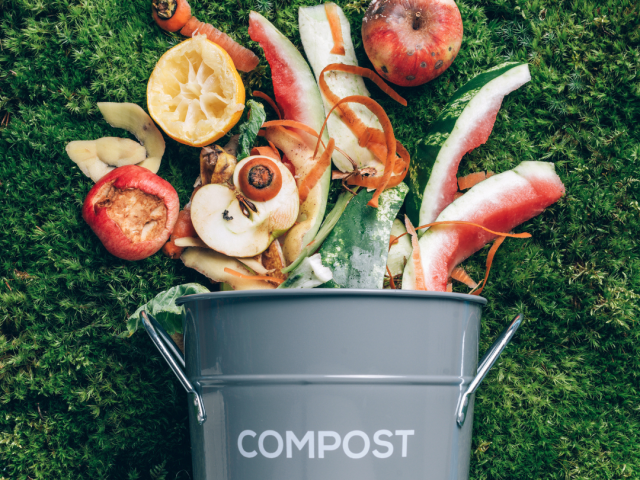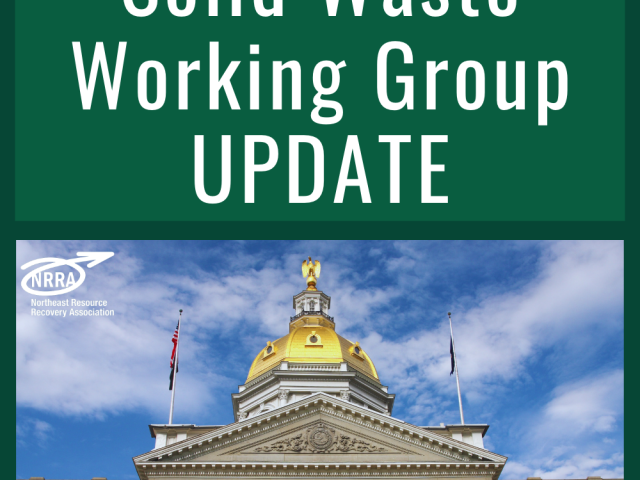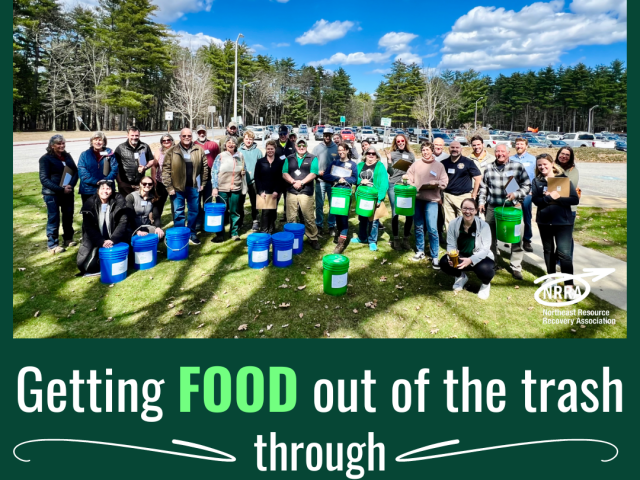Composting Toolkit

Food waste accounts for 24% of municipal solid waste (EPA, 2018). Food scrap composting has become easier in NH with changes to municipal and commercial composting regulations.
Food scrap composting saves economic and environmental resources, as food waste is diverted and does not end up in a landfill or incinerator.
In this Composting Toolkit, you will find the basics for municipal food scrap composting in a video and a printable resource, several resource links for operators, helpful articles to share with residents, and case studies.
(Video should load shortly or watch the Municipal Food Scrap Composting Toolkit Video on YouTube)
Need help or have a question? Reach out to our Member Services team by email or by calling: 603-736-4401
Key Takeaway: a municipal compost program can be a cost-effective way to divert food scraps and decrease municipal solid waste.
WHAT TO DO
There are several type of food scrap diversion options a municipality can utilize, including:
- On-site composting where a transfer station receives AND processes food scraps into compost on transfer station grounds.
- Off-site composting where a transfer station collects food scraps on-site and then transfers them to another facility to be processed into compost.
- Off-site composting with a non-solid waste facility community collection center.
- Curbside collection by contracted food scrap haulers to be processed either on or off site at the transfer station.
MUNICIPAL COMPOSTING RESOURCES
On-site composting at a transfer station is also known as "community composting" - larger scale than home composting but smaller than commercial or industrial composting. Municipalities interested in on-site composting will find a variety of resources here.
- How to Start a Municipal Food Scrap Diversion Program - Created by the Upper Valley Lake Sunapee Regional Planning Commission
- Financial Considerations for Municipal Food Scrap Recovery - Created by the Upper Valley Lake Sunapee Regional Planning Commission
- Municipalities have had success partnering up to divert food scraps, with multiple municipalities collecting food scraps and sending them all to one municipality to be composted.
- Solid Waste District Adds Four Towns to Composting Program in Franklin County, MA - WasteAdvantage Magazine
- Model Food Scrap Composting - Northeast Recycling Council (NERC)
- Compost Calculator - designed to develop balanced compost recipes with a diverse range of feedstocks. Created by Green Mountain Technologies.
- Compost Troubleshooting - designed by NERC, this table answers common issues that can arise when composting, such as the pile being too wet, too dry, smelly, is heating up too much, or isn't hot enough, plus several more issues operators may face when composting on-site.
- Organic Materials Management & Composting for Rural, Small, and Tribal Communities - created by the Northeast Recycling Council. This guide was designed to assist decision makers, solid waste staff, citizen activists, and others in developing and expanding yard debris, food scrap, and other organics management strategies.
- Jump to page 41 to view the Centralized Composting section, which includes (but is not limited to):
- The Composting Process and Recipe Development
- Composting Technology and Methods
- Siting Parameters, site selection, design, drainage, and opportunities
- Staffing, Training, Health, and Safety
- Equipment, Tools, and Monitoring
- Jump to page 41 to view the Centralized Composting section, which includes (but is not limited to):
- Centralized Composting Operation Best Management Practices - part of a NERC presentation on Food Scrap Management. Images and text all about setting up an on-site municipal composting program, including different types of composting (windrows or aerated static piles), information on siting and financing, staff training, equipment, and more.
- Food Scrap Collection - part of a NERC presentation on Food Scrap Management. Images and text focused on collection options and containers.
- Community Composting Done Right: A Guide to Best Management Practices - Created by the Institute for Local Self-Reliance
- Municipalities with Composting Programs in NH and VT - NRRA Resource Page
- What's Your Ideal Composting Recipe? - Following these instructions from Biocycle, and using an app to help with the calculations, will hopefully save you months of experimentation.
COMMERCIAL COMPOSTING RESOURCES
Municipalities interested in off-site composting should reach out to a vendor or farm in their area for more information.
- Collection and On-Farm Composting for Municipalities - Created by the Upper Valley Lake Sunapee Regional Planning Commission
- Food Composting & Diversion Services - NRRA Resource Page, includes food waste pick-up vendors and local farm partners.
GENERAL COMPOSTING RESOURCES
- Food Scrap Diversion and Composting - resource page covering household, school, and municipal composting. Created by the Upper Valley Lake Sunapee Regional Planning Commission.
- Municipal Composting of Yard Waste - Environmental Fact Sheet created by NHDES, contains helpful information about processing of compost in windrows.
- Backyard & Small Scale Composting - part of a NERC presentation on Food Scrap Management
- Resident Education on Municipal Food Scrap Composting - part of a NERC presentation on Food Scrap Management
- On-Farm Composting Toolkit - Composting Association of Vermont, contains helpful information for farms to start or improve a composting program
NH PERMIT & STATUTORY RESOURCES
- Permitting Options for Municipal Food Scrap Recovery Programs - Created by the Upper Valley Lake Sunapee Regional Planning Commission
- Composting Facility Requirements - NH Code of Administrative Rules
- Self-Inspection Checklist: Food Composting - NHDES
- New Compost Facility Rules in NH - NRRA
HELPFUL ARTICLES
- Community Composting Keeps Growing! - NERC
- Municipal Compost Conversation Stirs Interest at NRRA Member Operations & Marketing Meeting - NRRA
- See how Lebanon, NH and New London, NH have implemented food scrap composting in their respective communities.
NRRA RESOURCES
The following resources have been created by NRRA in regards to composting. This is a dynamic and up-to-date listing of all composting-related resources.
April 22, 2024
News

March 28, 2024
Document

March 18, 2024
Document

March 18, 2024
Document

April 06, 2023
News

